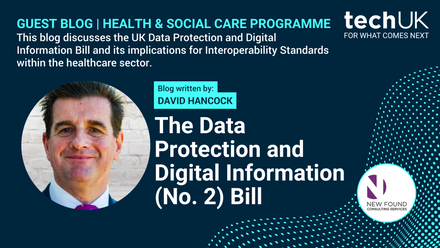Government launches call for views on the future of the CyberFirst programme
Established in 2015 to identify and nurture young people to help fill the increasing cyber skills shortage, CyberFirst has helped to improve the tech skills of 260,000 students across 2,500 schools throughout the UK. The programme has achieved great success, both in boosting the number and diversity of those working in cyber, but a new approach is required to ensure it can be scaled to inspire future talent into the sector. To achieve this, the initiative will need to draw more on non-government partners and increase industry buy in.
Announced at the CyberUK 2024 conference, a new government Call for Views aims to:
- seek views on the future direction of CyberFirst;
- seek views on the creation of a new alternatively led organisation to take over CyberFirst delivery and achieve scale; and
- seek views on the continuing role of government to support scaled and sustained delivery.
techUK will be submitting a response on behalf of members. If you would like to contribute to techUK’s response, please contact Dan Patefield at [email protected].
The Call for Views will close on Friday 9 August. Members are also encouraged to submit your own response to government.
More on the proposed measures for the future of CyberFirst
The Call for Views document outlines the key CyberFirst offerings currently delivered primarily by the National Cyber Security Centre (NCSC) and the Department for Science, Innovation and Technology DSIT) at a cost of £10 million and their impact and some oppo. These include the Undergraduate Bursary Programme, Regional Ecosystem Partners and Hubs, CyberFirst Girls Competition, CyberFirst Courses and Cyber Explorers.
Moving forward, the CyberFirst programme must continue to achieve its objective of charting a clear path between academic subjects at school and practical tech opportunities that exist in the workforce so that they are visible to young people. However, the programme’s impact could be even bigger if it was lead outside of government, while maintaining NCSC and government links and oversight, and the Call for Views document outlines the reasons behind this thinking.
Government is looking for feedback on 5 key themes
1 – Establishing a new organisation
The Call for Views, is therefore, seeking feedback on the idea of establishing an alternative body to lead CyberFirst, which would allow industry and other partners to invest more heavily in the programme while maintaining government and NCSC commitment and engagement which are essential to maintaining brand recognition. This proposal relies on CyberFirst developing other primary sources of finding to support its long-term sustainability, with examples given including industry donations, philanthropic/charitable support, government grants, branding/assurance and commercializing CyberFirst assets.
2 – Organisational structure
Further to the success of CyberFirst’s regional partners expanding the reach of the programme on a bespoke basis, the Call for Views is also seeking input on whether there should be a central body which raises and redistributes funds to regional partners; or whether there are other ways in which a new body could be effectively structure.
3 – A ‘public good’ mission
In order to achieve it’s objectives to identify, nurture and inspire a diverse range of young people into a cyber security career, CyberFirst activities are free for the end user and not profit driven, which allows the programme to reach those from socio-economically deprived backgrounds, or those less likely to engage with cyber without intervention. The Call for Views is, therefore seeking views on the position that any new organisation should have a ‘public good’ mission and maintain the programme’s current core objectives.
4 – Programme scope
The Call for Views document notes that, given the evolving technology landscape, there is an opportunity to broaden the scope of CyberFirst to support the talent pipelines into wider tech sectors such as AI, quantum and data science. Government is, therefore, also seeking feedback on whether CyberFirst should be expanded beyond cyber security, whether there should be sector specific initiatives within the programme and, if so, what the target age range should be.
5. The future role of government
Under the leadership of the NCSC, supported by DSIT, CyberFirst has successfully growth and become established as a high-quality brand; and government is seeking views on whether, going forward, the NCSC, DSIT and the devolved administrations should remain closely involved with CyberFirst.
You can access the full call for evidence document Inspiring and equipping future talent: scaling the impact of CyberFirst here.








